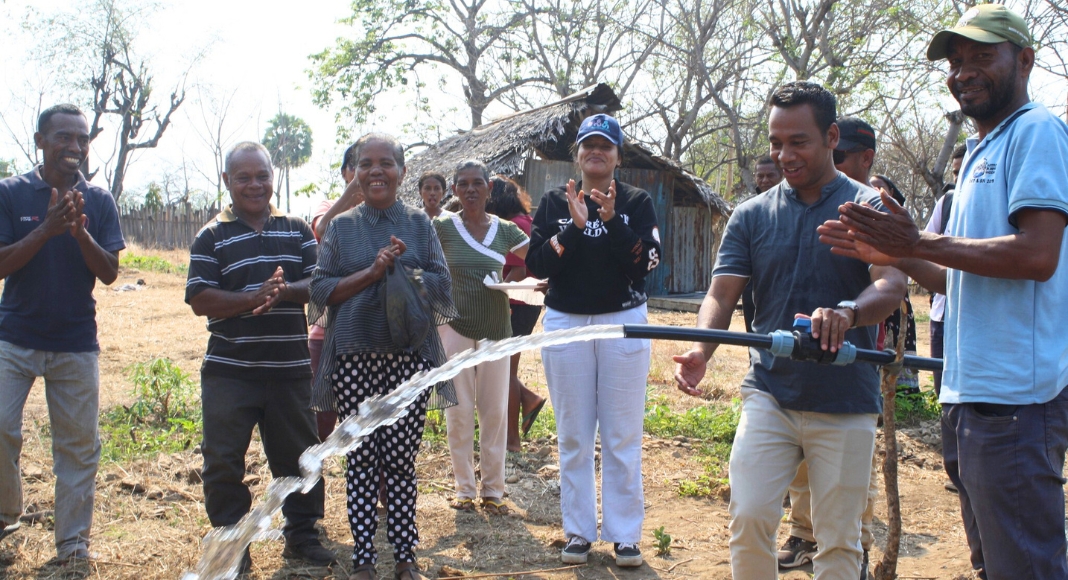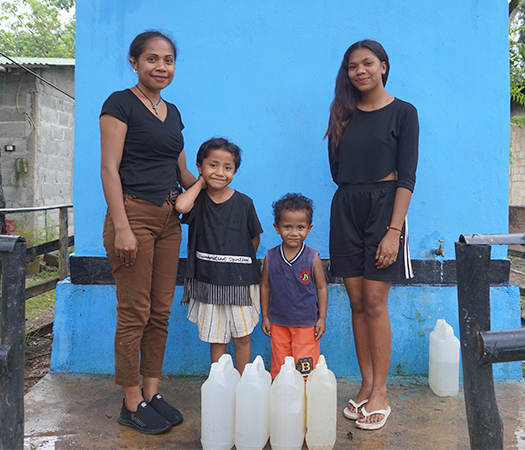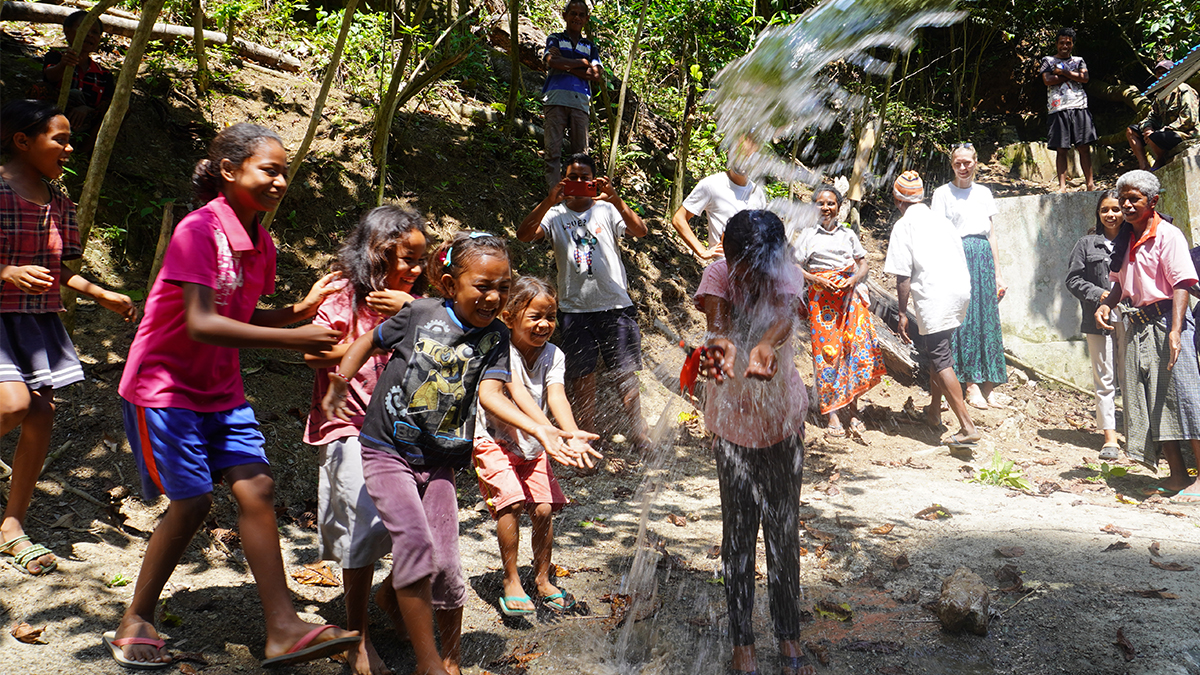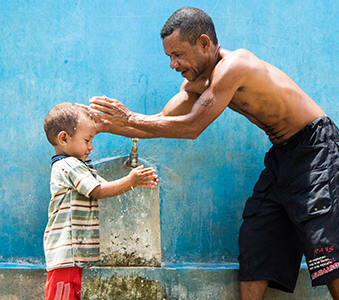Water is a basic life resource, and what comes with water is life in its full potential. When water is made available to communities, the potential for livelihood is reinforced and health and sanitation are improved.
Timor-Leste is Asia’s youngest country, achieving independence only in 2002. Today, almost half of the country’s population live in extreme poverty. Since the establishment of independence, the Jesuits have been accompanying the local communities in Timor-Leste to help build a better future.
In Timor-Leste, 65% of the population lives in rural areas in small, dispersed villages isolated by mountainous terrain and poor road conditions. In remote areas, easy access to clean water and sanitation is often non-existent. Families living in these communities are forced to walk long distances to collect water.
“Even after 20 years of independence many Timorese living in rural areas still do not have access to basic water facilities. We thought that as Jesuits we could help the government and help lessen this burden on people by starting the water project.”
Fr Júlio Sosa SJ, Director of Jesuit Social Services Timor-Leste
Collecting water is often hard work, and so families use water for only the most essential needs, such as drinking and cooking. This means that other tasks that require water, such as handwashing, are reduced, and this can lead to poor hygiene and an increased number of health problems.
In response to this situation, Jesuit Mission supports the Water Project, set-up by the local Jesuits in Timor-Leste.

The Water Project’s primary aim is to support rural communities and help provide clean and safe water. It does this through working with communities to construct clean water infrastructure such as deep well pumps.
The project involves community members in the planning, construction and maintenance of the water sources, so that they have a sense of ownership and responsibility of water system. This leads to a strengthened sense of community, as well as long-term sustainability of the water infrastructure.
Program details
Families are now able to collect water safely and easily right near their homes. As a result, people are able to have proper baths, families have been able to use water for planting vegetables in their backyard, and children are able to attend school because they no longer spend hours each day collecting water.
Since 2018, Jesuit Mission has partnered with Jesuit Social Service (JSS) Timor-Leste to build water facilities in 18 communities, providing over 6,500 people with safe, clean water.
“We have given 15 units of toilets to 15 families in 4 different sub-villages. This project is an initiative to remind us all on the importance of sanitary facilities for these communities.”
Fr Júlio Sosa SJ, Director of Jesuit Social Services Timor-Leste
This project has greatly reduced the distance and time needed to fetch water. Previously, residents walked 1 to 2 kilometers for water; now, clean water is just 10 meters from their homes, significantly reducing the time spent collecting water.
In addition, to the water project, the sanitation project began in early 2021, which includes the installation of 36 sanitation systems , benefitting 213 household. The project also promotes better hygiene practices and health standards.
Jonia’s Story
For Jonia, a 28 year old mother, village chief, part-time coffee worker and graduate of the Jesuit-run secondary school NOSSEF, the installation of a water facility on her doorstep in Railaco has dramatically improved her community.

“Water helps our children grow. We want them to be teachers, doctors, and engineers. We want them to have a good life.”
Jonia
With clean water now nearby, Jonia’s community is experiencing new agricultural opportunities and an improved standard of hygiene.
Children no longer have the burden of collecting water before and after school.
“It is all totally different now,” Jonia says. “Our house is very close to the water tank, just a few metres away. We can use it any time we like.”


